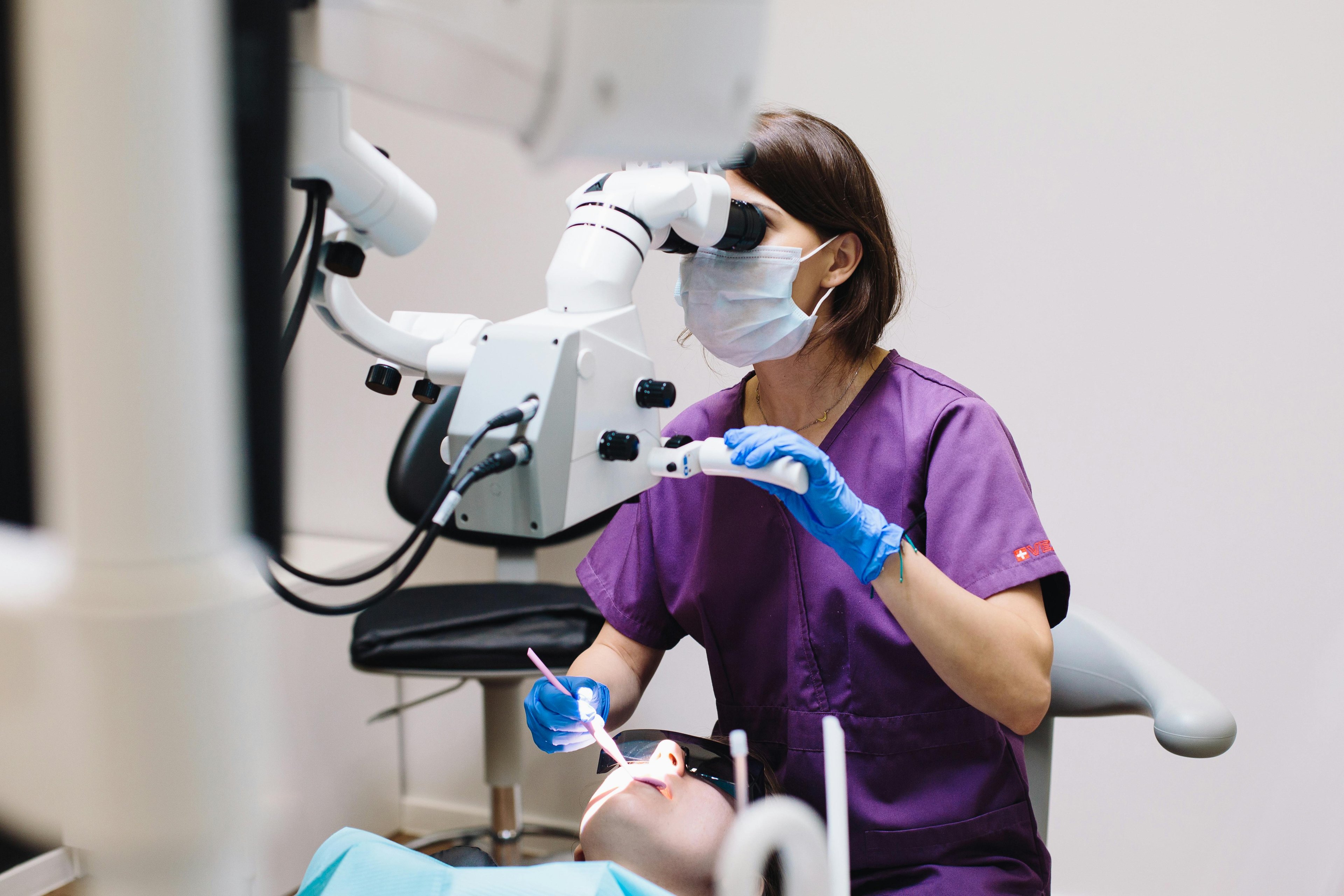Contents
- 1. What is a good choice of A Levels for Dentistry?
- 2. What A Level grades will I need for Dentistry at University?
- 3. Why is Chemistry important for dentistry?
- 4. What other entry requirements are there for Dentistry?
- 5. Work experience required for Dentistry
- 6. What additional admissions tests are required for Dentistry?
- 7. Top tips on choosing the best A Levels for Dentistry
- 8. How To Become a Dentist in the UK Infographics
If you wish to apply to university to study dentistry, your choice of A Levels is crucial. Not surprisingly, biology is almost always required, and chemistry is also a firm requirement. In some cases, your third choice could be maths, and can also be physics.
Some dental schools like a candidate's third choice to be outside of this group of A levels, but that is something to check with each individual dental school that is being considered.
What is a good choice of A Levels for Dentistry?
Chemistry, biology and physics - this will get you into most dental schools
Chemistry, biology and maths - this will get you into most dental schools
Chemistry, biology and one other A level - this will get you into some dental schools
Only one of chemistry and biology - this will restrict your choice of dental schools but you should research this carefully to find a suitable place
What A Level grades will I need for Dentistry at University?
Dental schools publish their requirements on their websites, usually in the form of a number of grades. The precise mix of the subjects, and the grades that you would be expected to get in those subjects, varies from one dental school to another.
If you only have one A Level from chemistry and biology, this might restrict the dental school that might accept your applications. It is therefore advisable to have A levels in both subjects. Physics or maths is recommended as your third subject choice.
The minimum is a set of grades AAA, with some universities requiring one or two A* grades.
Not only are A levels required, but dental schools will also look at GCSE grades, in particular evidence of Grade 8 or 9 (A*) in biology and chemistry, as well as a minimum of Grade 7 (A) in GCSE Maths and GCSE English Language.
Why is Chemistry important for dentistry?
Chemistry forms the basis of all molecular interactions that ultimately govern how an organism behaves in its habitat. Drugs have their effect through chemical interactions, and any dental patient would rightly expect their anaesthetic to have been carefully chosen to minimise pain! Other chemical influences such as oxidation and reduction are vital in the understanding of the basic processes of life that are important to a dentist when treating a patient. The choice of filling material is crucial to effective dental treatment, and pH is an important factor in dental hygiene, as acidic conditions in the mouth can promote tooth decay.
What other entry requirements are there for Dentistry?
Most dental schools require candidates to apply with evidence of having worked or volunteered in the healthcare sector, to gain a flavour of what it is like to work as a dentist, in private practice or in the NHS.
Supplementary test scores are required for dentistry in the form of the UCAT (or similar) tests that examine a number of non-subject skills that are important in the workplace.
Work experience required for Dentistry
Some dental schools like applicants to have completed work experience in a dental practice, in order to demonstrate experience of working in a healthcare setting. This experience is usually specific to dentistry although evidence of work experience in the wider healthcare sector is also valuable. Make sure to check with each individual dental school that you intend to apply to, so that you have enough work experience to support your application.
What additional admissions tests are required for Dentistry?
UK Dental schools use a separate admissions test, which can be one of three tests. Most schools use the University Clinical Aptitude Test (UCAT), which is a 2-hour computer-based test designed to establish a candidate's suitability for the demanding course of study that they wish to pursue.
The UCAT test consists of five main modules, Verbal Reasoning, Decision Making, Quantitative Reasoning, Abstract Reasoning and Situational Judgement.
Other dental schools require candidates to sit a similar test called the Biomedical Admissions Test (BMAT), although this is being withdrawn for 2024. Some schools operate their own entry test in the same vein as the UCAT.
Top tips on choosing the best A Levels for Dentistry
Good A Levels (A* or A) in chemistry and biology are almost always required
Physics and / or maths is a good third choice
Work experience/volunteering in the sector is important to support an application to dental school
Dental schools conduct their own supplementary test (usually UCAT) to help establish a candidate's suitability for the dental profession.
How To Become a Dentist in the UK Infographics

https://www.tiktok.com/@savemyexams/video/7395601767515344161?lang=en
Further reading:
Sign up for articles sent directly to your inbox
Receive news, articles and guides directly from our team of experts.

Share this article


 written revision resources that improve your
written revision resources that improve your